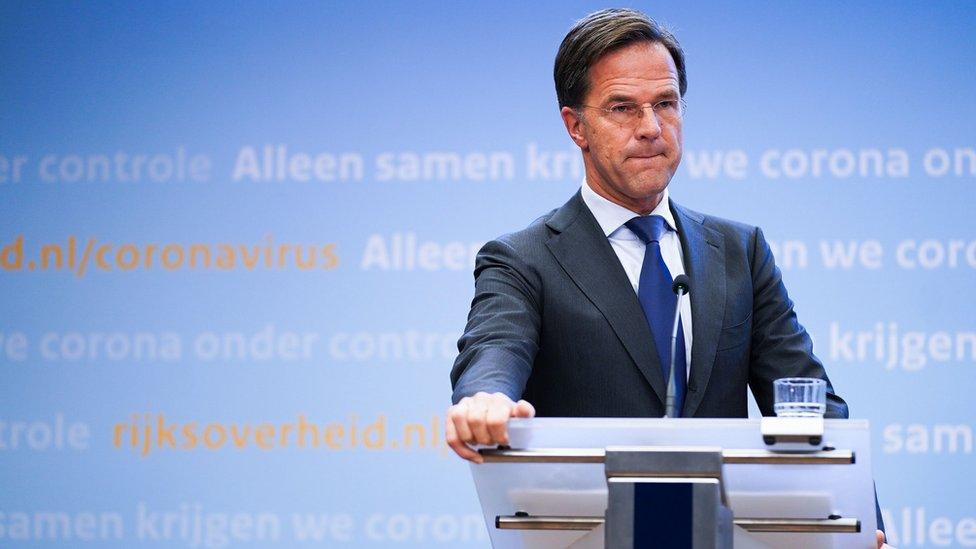Coronavirus: Netherlands makes face masks mandatory indoors
- Published
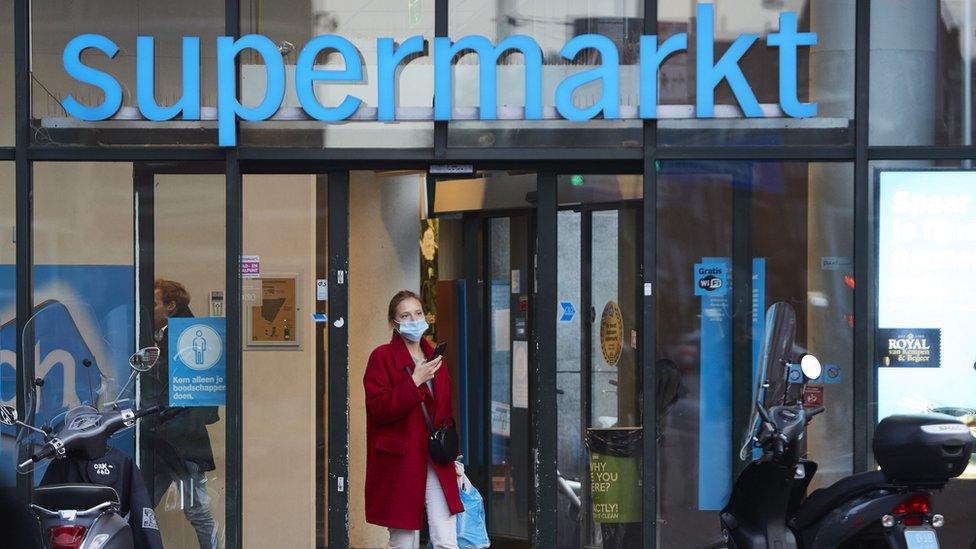
Major retail chains have said they will not enforce the new rule
The Netherlands has made it compulsory to wear a face mask in indoor public spaces in an effort to contain the spread of coronavirus.
The country is one of the last in Europe to introduce such a measure.
The rule will apply to those over the age of 13 in public buildings such as shops, railway stations and hairdressers from Tuesday.
The Netherlands has been one of the countries worst affected by Europe's second wave of Covid-19.
It broke daily case records throughout October, and the number of new confirmed infections in the country of 17 million has remained fairly stable at about 5,000 a day for several weeks.
The new face mask rule will remain in place for at least three months, with those who ignore it facing a fine of up to €95 (£85; $113).
But there are questions over how the measure will be enforced. Major retail chains have said they will inform customers about the rule but not refuse entry to those without a face covering.
"This is not something which we consider part of our job as shop workers," a spokesman for the Mirage retail group said.
Five challenges of distributing a Covid-19 vaccine around the world.
Separately, under the measure, students and teachers will have to wear a mask when moving around school buildings but not during lessons. Teachers who move around the classroom while talking, however, will have to put on a face covering.
Places of worship, such as churches, temples, and mosques, are exempt.
"Making face masks mandatory almost everywhere makes it clearer what the rules are," a government website reads. "[We] want to prevent the spread of the coronavirus."

Why has it taken so long?

The Dutch have tied themselves up in knots over this issue.
As neighbouring nations followed World Health Organization advice (the body recommends wearing a mask to help reduce the spread of the virus), the government refused to follow suit and insisted it was being "guided by the science".
Scientists here doubted whether masks were effective. In fact, the prime minister even spoke of potential risks they posed and suggested they gave people a false sense of security.
Moreover, at the start of the crisis the Dutch were told they didn't need to be treated like children with curfews and other sweeping measures. That has made it harder for the government to convince people they do now need to be told what to do. This inconsistency has caused confusion and reduced compliance.
It's also worth noting that the coalition cabinet is made up of four political parties that have been battling with competing priorities: the economy, civil liberties and people's health.
The much-lauded Dutch "live and let live" mentality has also been used as an excuse for people not to change their habits or lifestyles. That said, the latest figures collected by the Dutch public health institute suggest 84% of people "support the principle" of wearing a mask.

Earlier in the year, the Dutch government adopted a strategy of "intelligent lockdown" that avoided strict national restrictions and did not shut down as much of public life as in many other countries.
At the time, Prime Minister Mark Rutte described the Netherlands as a "grown-up country" where people were glad to be "treated as adults".
Only in September were people in the country's major cities advised to wear face masks in shops.
What else is happening in Europe?
A new "pandemic hospital" with more than 1,000 beds has opened in the Spain's capital, Madrid. Construction of the Isabel Zendal hospital began in July and the facility was officially opened on Tuesday. Spain reported 9,200 Covid deaths in November, the highest figure since April, but infection rates have been falling
Mass testing of all children and teachers will take place in the central German town of Hildburghausen, where a Covid outbreak has closed schools. The tests involve around 8,000 children and 1,000 teachers. Another 388 deaths have been reported in Germany in the past 24 hours
Meanwhile, mass testing across Austria will start later this week with the aim of reaching as many people as possible by Christmas
Non-essential shops have been reopening in Belgium after a month's closure, and there have been long queues outside major clothing chains. Daily hospital admissions have fallen to 120, the lowest tally since early October
And Italy's regional leaders are hoping to convince the government to allow hotels in ski resorts to open over Christmas, while closing international borders. Prime Minister Giuseppe Conte has said the resorts will have to shut. Germany and France have shut ski lifts over the holidays but the Swiss are keeping theirs open
Related topics
- Published19 November 2020
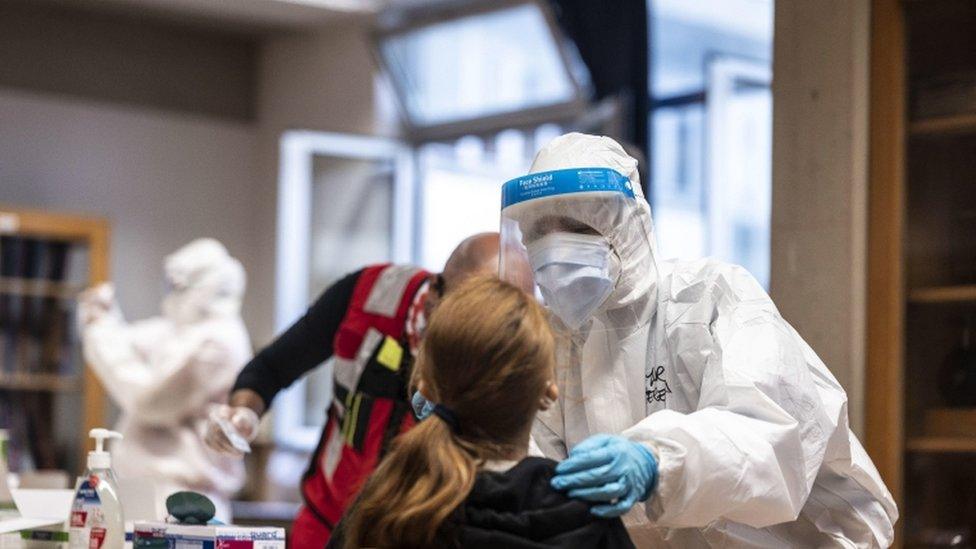
- Published13 November 2020
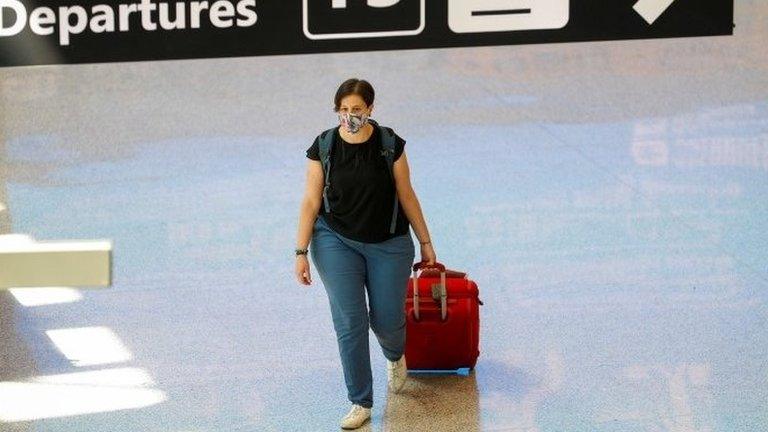
- Published28 September 2020
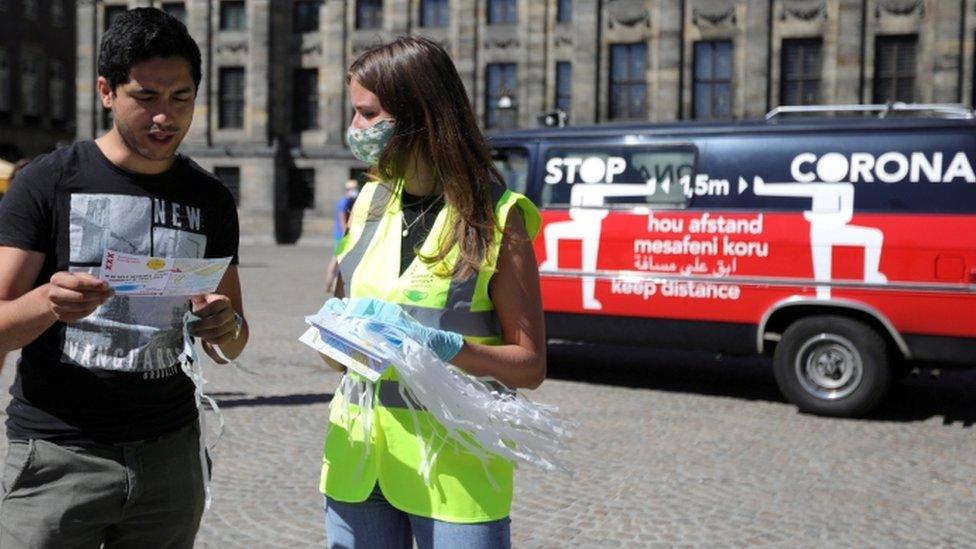
- Published18 October 2020
